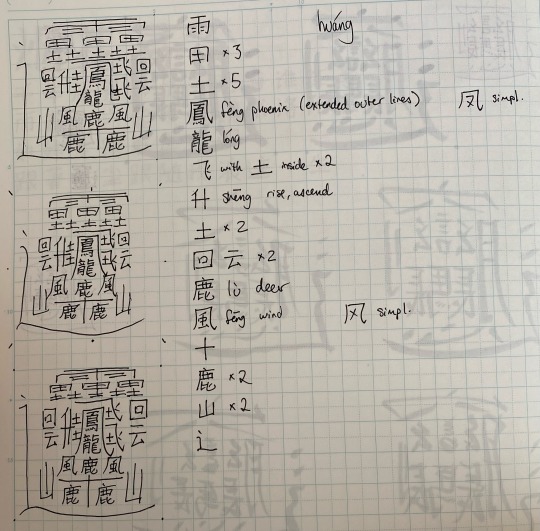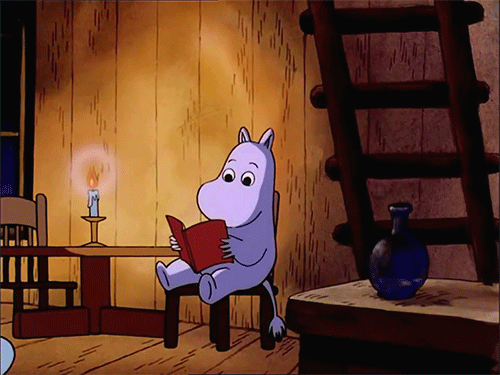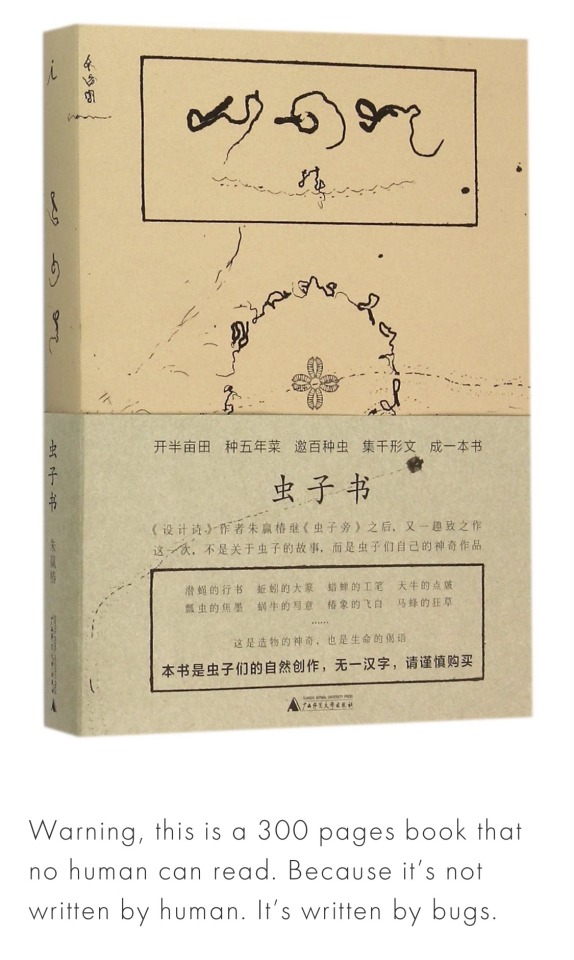Text
5 common words my Chinese classes and textbooks didn't teach
Don't get me wrong, I enjoy learning with classes and textbooks. But no single resource or method can teach you the entire language! Here are 5 words (do particles count as words?) I see/hear all the time in native content that I never learned from classes or textbooks. Looking back, I'm surprised these weren't taught!
不仅 | 不僅 bùjǐn - not only (or 不仅仅 | 不僅僅 bùjǐnjǐn)
有这种看法的不仅是我一人。
他的病情不仅不见好转,反而更加严重了。
即 jí - namely / that is / i.e.
闽即福建省的简称。
元旦,即公历的1月1日,是世界多数国家通称的“新年”。
平时 | 平時 píngshí - ordinarily / in normal times
你平时都喜欢做什么?
他的打扮跟我平时遇到的人不大一样。
稍 shāo - somewhat / a little
请稍等。
说到这儿,他稍停了停。
呗 | 唄 bei - modal particle indicating lack of enthusiasm / modal particle indicating that things should only or can only be done a certain way
你不同意,那就算了呗。
既然不懂,你就好好学呗。
PS: I actually checked the textbooks I used in college to confirm that these weren't covered. But of course they could have been included in your textbooks.
Definitions are adapted from MDBG.
116 notes
·
View notes
Text
Seitokai Discord・May English Bookclub

This month we are reading The Guest Cat by Takashi Hiraide!
Join us in the Seitokai Discord Server and grab the English bookclub role to get started!
The book club starts May 1st! There's also a Japanese book club if you'd like to join that!
64 notes
·
View notes
Text
慣用句
かんようく
idiom; set phrase; idiomatic phrase
小学生(高学年)が知っておきたい、良く使う重要な慣用句とその意味を、あいうえお順にならべ一覧表プリントを作りました。
しょうがくせい(こうがくねん)が しって おきたい、よく つかう じゅうよう な かんようく と その いみ を、あいうえお じゅん に ならべ いちらんひょう プリント を つくりました。
We have created a printed list of frequently used and important idioms and their meanings that elementary school students (upper grades) should know, arranged in alphabetical order.

34 notes
·
View notes
Text
かっちり
① tightly; exactly; precisely
② close-fitting (e.g. suit); firm (body); lean
計画をかっちりと立ておく。
けいかく を かっちり と たて おく。
Make sure you have a plan solidly in place.

36 notes
·
View notes
Text

Love this skeletal, wavy handwriting! 月光荘 is read Gekkōsō. Breaking it down:
月光 [げっこう] means moonbeam or moonlight.
月 means month or moon. It’s read つき, ゲツ, or ガツ.
光 means light or ray. It's read ひか.る, ひかり, or コウ.
荘 means villa, inn, cottage, feudal manor, solemn, or dignified. It often shows up as a suffix in hotel or business names, conveying a sense of luxury or dignity. It's also the counter for games of Mahjong, in which case it's read チャン. Otherwise, it's usually read ソウ or ショウ, rarely ほうき or おごそ.か.
97 notes
·
View notes
Text
欲張り
よくばり
greed, avarice, covetousness, greedy person
持てば持つほど、欲張りになる。
もてば もつ ほど、よくばり に なる。
The more you have, the more you want.

28 notes
·
View notes
Text
Podcast Review: ことのは

Podcast Title: 日本語の会話のpodcast −ことのは−
(にほんごのかいわのpodcast −ことのは−)
Available On: Spotify, YouTube
Ease of Listening: ★★★★★
Length of Episodes: ★★★★★
Level of Engagement: ★★★★★
Episode Frequency: ★★★★★
Overall: ★★★★★
Today I will be reviewing the Japanese conversation podcast ことのは (Kotonoha) by Yamamo-sensei and Kibi-sensei. They have episodes for all levels, separated by JLPT level N5-N1 and labeled so you can determine which episodes best suit your level or challenge yourself with a higher level.
Do I currently listen to this podcast?: Yes, I like this podcast a lot and listen to it frequently.
General Overview
Good For Levels: Beginner | Intermediate | Advanced
In this series, Yamamo and Kibi, two Japanese language teachers based in Japan, speak on a variety of topics in a conversation style of podcast. The conversation-style format is good for training your ear to listen to questions and responses, and every day banter between two speakers. They talk about Japanese culture and their own personal experiences which gives listeners an insight to the particulars of daily life in Japan.
Length of Episodes ★★★★★
The podcasts are usually around 20-30 minutes long. This is ideal for a commute or when you have some down time. They cover 2-3 subtopics within each topic they pick, so the conversations are very interesting and catch my attention and they don't seem too short or too long. They plan out each conversation topic carefully and keep it interesting and informative.
Level of Engagement ★★★★★
The conversation format is very engaging because they cover 2-3 subtopics within the main topic and structure the conversation to focus on each point of the topic. They keep the listener engaged with carefully planned-out topics and conversations, and there is obviously a lot of work that goes into their podcast. They match the vocabulary and pace of speaking with the level they are targeting, but even in the higher level podcasts I believe beginners would be able to catch the general flow of the conversation and challenge themselves to understand the content.
Episode Frequency ★★★★★
New podcasts come out once a week, and with the planning that goes into each episode it's a very good pace. There is also a lot of episodes already produced so you can go through them fairly quickly without running out of material.
Overall ★★★★★
This podcast is designed by two Japanese language teachers to convey information about Japanese culture completely in Japanese. The episodes are labeled by JLPT difficulty and I find the label system to be very accurate. It is a good podcast with which to practice your listening skills for every day conversation and to learn a bit more about Japanese culture.
105 notes
·
View notes
Text
レタスクラブ
I wanted to recommend レタスクラブ to advanced Japanese learners.

レタスクラブ (Lettuce Club) is a site that has both レシピ and 読み物 that someone introduced me to recently. I came for the 読み物, but the レシピ looks good too.
I have been reading through some of the comics under the 読み物 section 趣味, which has a variety of artists and themes to choose from. This is definitely a site for advanced readers, but if you'd like to try to navigate around the site you can practice reading.
Start Here for Comics, then try:
趣味
くらし
育児・子育て
Happy reading!
100 notes
·
View notes
Text
海象
せいうち; セイウチ
walrus
妖精
ようせい
fairy; sprite; elf
誰かがあなたの部屋のドアをトントンした時、その相手が海象の時と妖精の時とだったらどっちの方が驚きですか?
だれかがドアにトントンしたら、せいうちかようせいだったらどっちのほうがもっとおどろきますか?
If someone knocked on your door, would you be more surprised if it was a walrus or a fairy?

50 notes
·
View notes
Text
Types of Japanese Tests
Whilst studying different aspects of Japanese (kanji, proverbs, etc.) I have discovered that there are a myriad of tests you can take (whether you are Japanese or a foreigner) to display your prowess in Japanese.

Japanese Language Proficiency Test (JLPT)
日本語能力試験
Wikipedia
JLPT Website
5 level exams (N5 lowest to N1 highest)
Offered twice a year in Japan (July, December), once a year in other countries (December)
Pass/Fail
Business Japanese Proficiency Test (BJT)
ビジネス日本語能力テスト
Wikipedia
BJT Website
1 exam, 5 levels depending on score (J5 lowest to J1 highest)
Offered any day a seat is open at a testing center
Numerical score gives you a rank (J5 to J1)
Japan Kanji Aptitude Test (Kanken)
日本漢字能力検定 or 漢字検定 or 漢検
Wikipedia
Kanken Website (JP)
12 levels (10級 lowest to 1級 highest, including 準1級 & 準2級)
Offered three times a year (February, June, October)
Pass/Fail
Japan Proverb Test (Kotoken)
ことわざ検定 or こと検
Kotoken Website (JP)
10 levels (10級 lowest to 1級 highest)
Offered four times a year (February, May, August, November)
Pass/Fail
Written Composition and Reading Comprehension Test (Bunshoken)
文章読解・作成能力試験 or 文章検
Bunshoken Website (JP)
4 levels (4級, 3級, 準2級, and 2級)
Offered 10-12 times a year, depending on level
Pass/Fail
104 notes
·
View notes
Text


Super long character practice: biáng and huáng
The first is often considered the character with the most strokes and refers to a type of noodle (biangbiang mian).
The second has more strokes but isn’t really a word. It’s considered an artistic representation of heaven, in character form.
I feel like biáng was actually possible to get somewhat decent, but huáng was just incredibly difficult to get the spacing right 😂
57 notes
·
View notes
Text
知的
ちてき
intellectual
知的な読書のための正しい速度などというものは存在しない。
ちてき な どくしょ の ため の ただしい そくど など と いう もの は そんざい しない。
There is no such thing as the right speed for intellectual reading.

38 notes
·
View notes
Text
無双
むそう
peerless; unparalleled; unparallelled; matchless
古今無双の選手だ。
ここん むそう の せんしゅ だ。
He is as great an athlete as ever lived.

31 notes
·
View notes
Note
hello there! i would like to ask if you know any sites where i can practice reading japanese? like news sites, manga sites, or sites that offer free e-books that are in japanese. and are there any japanese podcasts that i can listen to? thank you in advance for answering this question. it'd mean a whole to me!
Hey there! There are actually quite a few recommended sites for Japanese learners, so I’ll link them right now :)
Japanese IO – I’ve used this site quite a few times and I love the interface! The design is really sleek and “to the point,” so there’s no distractions from what you’re trying to do, which is practice reading Japanese. It also has a great library and look-up feature.
朝日学生新聞社 – This is the “kid’s version” of the more adult 朝日新聞社. If you don’t feel that you’re quite up for the adult version, test out the version geared towards kids. They have fewer articles, but there’s plenty for a learner to pick through.
NHK NEWS EASY – I’m almost positive this is one of the most famous ones for learners. It’s similar to Asahi’s kid newspaper – articles are condensed with easier kanji and vocabulary, and it’s geared towards children, so learners can spend some time combing through updated articles and testing their skills.
Yahoo! Kids – More short news articles geared towards easier-to-understand Japanese.
MATCHA – A fun magazine similar in style to NHK EZ.
Watanoc – Another magazine-type site with a variety of articles.
Traditional Japanese Stories – Get your hands on some easily printed Japanese stories that are told to children. Great for language skills and culture! Similar to English pop culture stories (like Cinderella and so on), Japan has its own fairytales that are occasionally referenced.
Fuku Musume’s Fairy Tale Collection – More stories!
World of チョコチョコ – These are beginner stories, but as you progress you can read other stories on this website.
EhonNavi – Read hundreds of Japanese picture books for free!
If you’re looking for more advanced content…
NHK – Japan’s national broadcaster. You can read articles as well as stream audio and video (may be blocked depending on location).
毎日新聞 – Moderate/left-leaning national newspaper
朝日新聞 – Left-leaning national newspaper
読売新聞 – Conservative national newspaper
東洋経済オンライン – A well-known business and finance magazine.
Project Gutenberg (Japanese) – Get access to a ton of out-of-print and classical books for free.
小説家に��ろう – A site where authors can publish their works online in exchange for reviews.
青空文庫 – Another site where you can get older and out-of-print novels.
University of Virginia Japanese Text Initiative – Another place to access novels in Japanese for free (with the option to read them with furigana).
ComicWalker – Free manga from the publisher Kadokawa. There’s an app too!
最前線 – You can read some manga online for free.
コミコ – More free Japanese manga available here!
キナリノ – A woman’s lifestyle blog which covers fashion, cooking, decor, and more!
Magazine Lib – You can read PDFs of Japanese magazines.
1000文字小説 – A place where users can submit 1000 characters or less stories.
I also highly recommend starting a Twitter (if you don’t already have one) and following Japanese accounts. I follow a lot of feminist and political accounts so that I’m learning words relevant to my interests, as well as interacting with people that are discussing topics of interest to me (i.e. women and their place in Japanese society).
If you’re curious, you can find me on Twitter at @sydney0313 :)
I hope this list proves useful to you! (And others.)
頑張ってください!
6K notes
·
View notes



